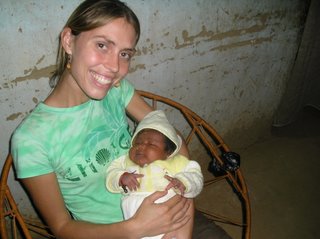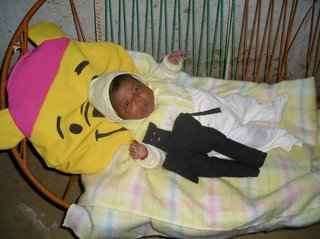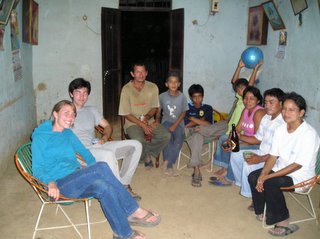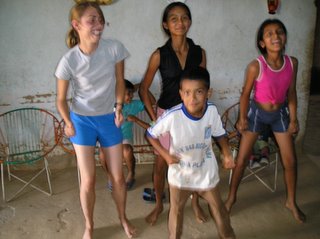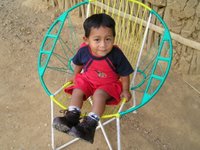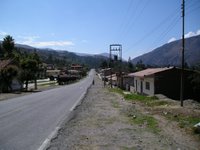Survival of the Fittest
In rural Peru, there can be a certain direness surrounding food, virtually unknown to middle-class Americans like myself. Sacks of rice and sugar and bottles of oil serve as the main weapons in the fight against hunger and deprevation in the households in Tumbes where I live. The poverty there, of course, defies definitions of urban poverty. Every family has their plot of land and benefits from its harvest - plantains, lemons, oranges, yuca, and beans. In this sense, we would hesitate to call them poor. Still, their diet lacks variety and primarily consists of complex carbohydrates like rice that are made to make them feel full, even when lacking in basic nutrients.
The word malcriada, essentially "malnourished" or "thin" and "lacking in nutrients" resonates out of every household occupied by children. Their parents use it constantly to criticise them from being naughty or bad. The degree to which the parents molest their children with this term, connecting undesirable behavior and food, seemed odd to me.
Even more strange was how my host mother took issues surrounding food to the extreme. This not only showed up in how she raised her children, but also how she dealt with animals. When I brought a puppy home, it caused a great deal of silent contention in the house. I heard that my host mother kicked my dog when I was not there. When I started buying dog food on a regular basis the situation improved. One day, while carrying eggs home from across town, the bag slipped just as I approached the house. Not desiring to let the valuable protein go to waste, I decided to give the broken eggs to my dog. When my host mother walked in to see the dog eating them, she got extremely upset, saying that now the dog would try to eat her chickens´ eggs. I assured her that this would not happen, but she would not listen. She holds particular beliefs that she insists upon, no matter what, including how cats will not eat mice if given affection. When we got a kitten one day, the pattern began - every time one of us picked up the cat she would yell at us. I learned to pet the cat in secret defiance of her irrational claim. She won in the end though. This week, after finding the cat eating the left over chicken from lunch, she took a rope, tied it around the kittens neck, and hung it in a tree. When I found out, I was horrified and confused at why anyone would go to such barbaric lengths over a few pieces of chicken.
In our house, I buy the chicken, and usually the rice, oil, vegetables, and tuna, as well. Food is the only currency which my host family accepts. I pay out of my monthly allowance. I also buy items like the gas that we cook with, but according to a friend, that does not matter to the people in the house. They don´t mind cooking with firewood. What they don´t like is not having anything to cook, especially when they feel obligated to feed a foreigner, like myself, who arrived with different experiences and expectations of food.



